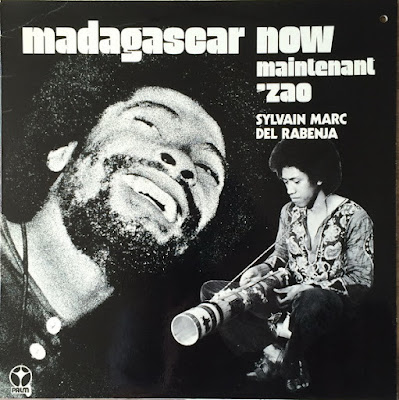Hal Singer & Jef Gilson
1974
Soul of Africa
01. Chant Inca 8:40
02. Mother Africa 6:54
03. The High Life 3:58
04. Libertarian 5:27
05. Garvey's Strut 6:05
Bass – Jacky Samson
Drums – Frank Raholison
Percussion – Del Rabenja, Gerard Rakotoarivony
Piano – Jef Gilson
Tenor Saxophone – Hal Singer
Vibraphone – Bernard Lubat
Mega rare great jazz recording of the legendary US saxophonist Hal Singer and French pianist Jef Gilson from 1974, originaly released on the French Le Chant Du Monde Label. The birth act of the Afro-/Jazz-Parisian scene that fascinated so many musicians and music fans throughout the 70s and 80s.Fantasic modal soul jazz masterpiece, a pure beauty from start to end..
An incredible sampling of jazz sub-genres. Soul of Africa transitions between and synthesizes afro-jazz with soul jazz with cool jazz and tucks it in under a spiritual jazz blanket. Every song on here is great, and each has its own feel. From the more traditional jazz club riffs on "The High Life" to the spiritual and incantatory "Chant inca", every corner turned while listening to Soul of Africa yields a pleasant and expertly executed surprise.
Let's end the week with a selection from one of my favorite African jazz records "Soul of Africa" which was a collaborative effort between saxophonist Hal Singer and pianist Jef Gilson. The album, which was originally released back in 1974 and later re-issued by Kindred Spirits, features a number of amazing Afro-centric jazz tracks including "Mother Africa", "Liberation", "Garvey's Strut", and my personal favorite "Chant Inca". With the original almost impossible to find, this is one re-issue definitely worth picking up. For those that enjoy this album I highly recommend checking out some of Gilson's other work including Malagasy, Malagasy At Newport-Paris, Le Massacre Du Printemps, Œil Vision, as well as the recent "Best of" release Jazzman Records put out this year. Enjoy!




